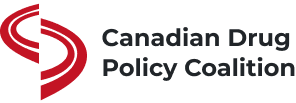bc yukon open letter bc yukon open letter bc yukon open letter bc yukon open letter
There is growing concern among people who live and work in high-risk and high-density settings in the province that not enough is being done to prevent a deadly outbreak of COVID-19 amongst these populations. Marginalized communities, including people who use drugs, those affected by homelessness, and those who are incarcerated will disproportionately bear the burden of the virus, while receiving the fewest supports to ensure their health and safety.
BC Yukon Association of Drug War Survivors, along with many other groups from around the province including the Union of BC Indian Chiefs, Pivot Legal Society, Canadian Drug Policy Coalition, Disability Alliance BC, BC Government and Service Employees’ Union and health professionals are calling on the Province to use its emergency powers to do the following:
- ensure that the level of Provincial attention and resources provided to prisons, homeless shelters, reserves, and high-density and high-risk hubs such as the Downtown Eastside is the same as that being offered to the rest of the population, including in long-term care settings;
- recommend that the Minister of Health order the immediate suspension of municipal bylaws that sanction the displacement of people sheltering in public spaces;
- recommend that the Minister of Public Safety and Solicitor General direct police forces immediately, and for the duration of both public health emergencies (overdose and COVID-19), to cease the enforcement of simple possession and related offences; and
- ensure that prescribers and their colleges are following the new Guidelines for Risk Mitigation in the Context of Dual Public Health Emergencies to saving lives.









